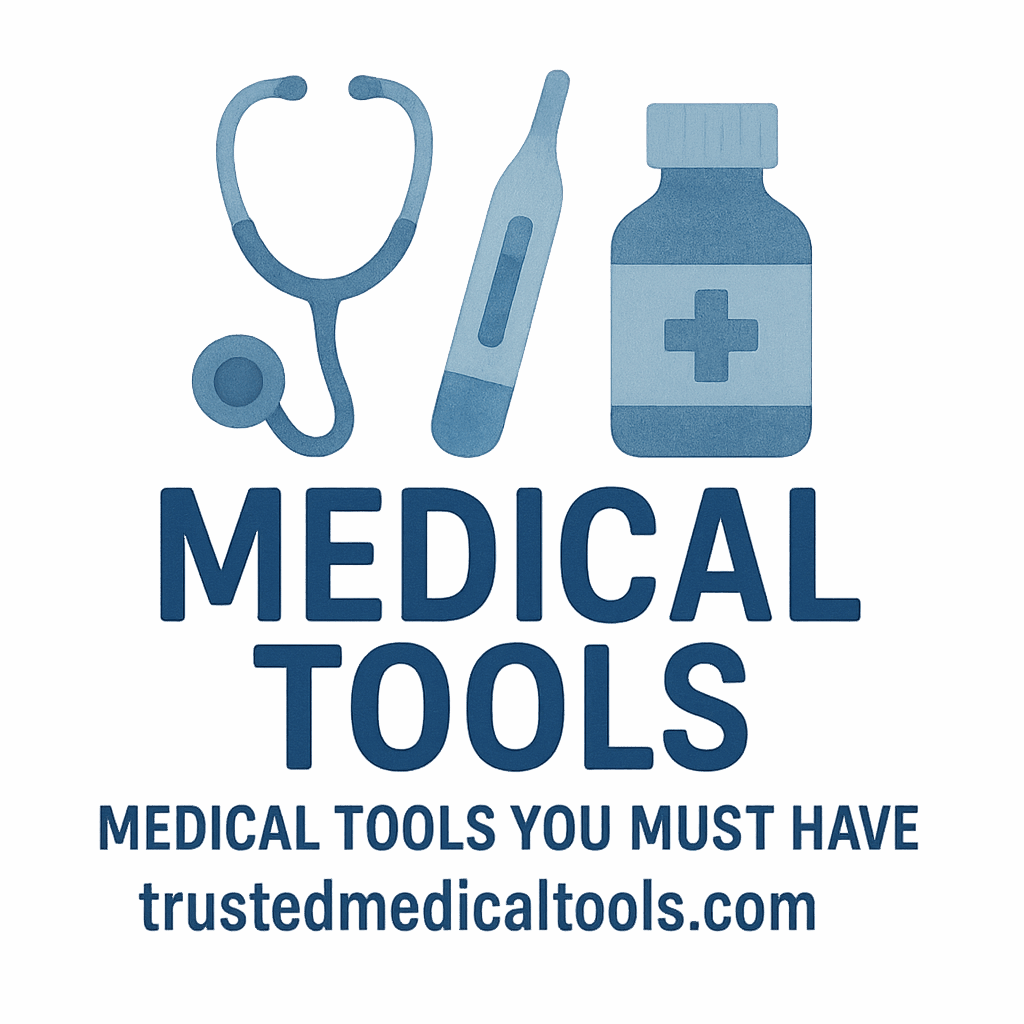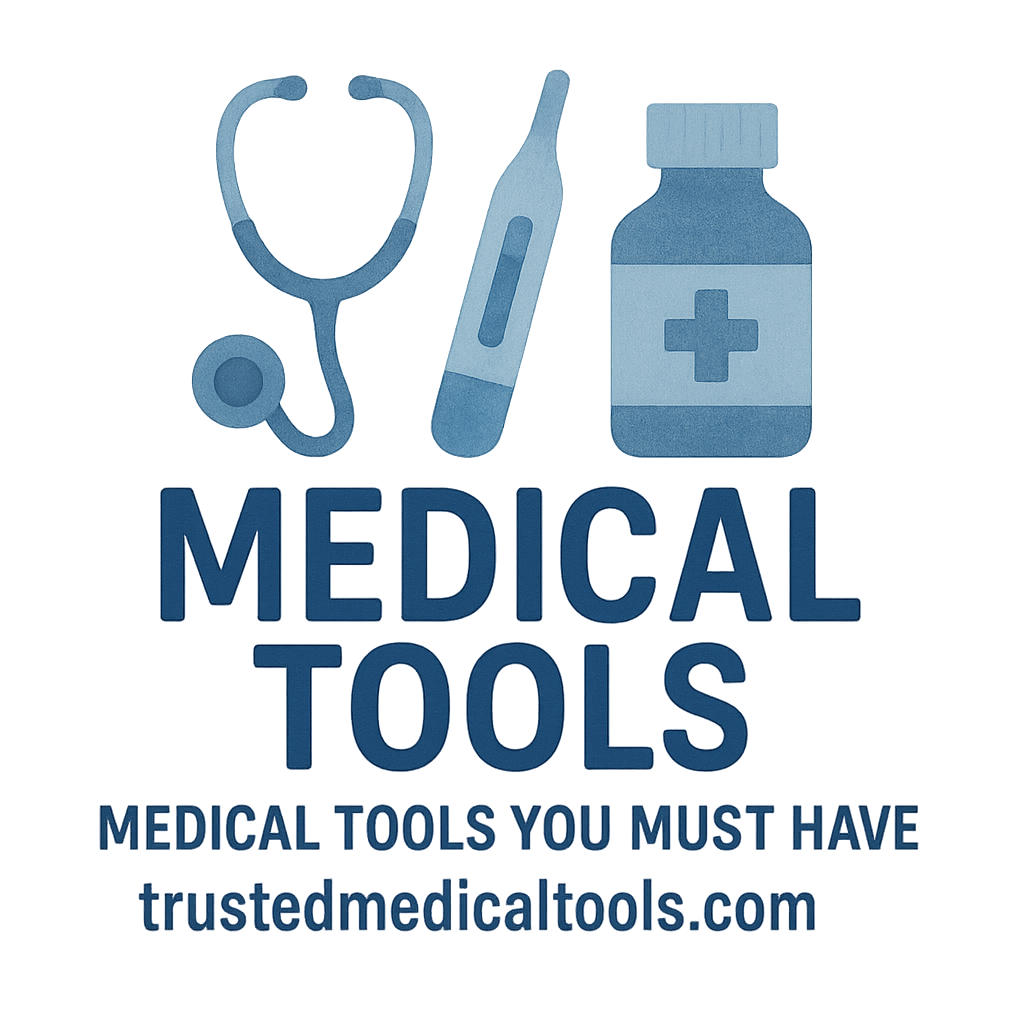Introduction
Every parent knows that keeping their family safe and healthy is the top priority. When it comes to taking care of your little ones, accidents, illnesses, or sudden health concerns can happen unexpectedly. While you can’t predict these events, you can certainly be prepared for them. That’s where having the right medical tools at home comes in handy. Having essential medical tools at your fingertips can help you handle minor injuries, illnesses, or emergencies without rushing to the doctor or hospital. But with so many options on the market, which tools are the absolute essentials?
In this article, we’ll cover 6 medical tools every parent should have at home to ensure you’re always prepared to handle any health-related situation. From simple everyday items to more specialized tools, each of these will help give you peace of mind. We’ll also include links to trusted resources like Trusted Medical Tools to help you make informed decisions when purchasing these essentials.
The Role of Medical Tools in Parenting
Being a parent comes with a lot of responsibilities, and one of the most important ones is ensuring your child’s health and safety. While many emergencies are unavoidable, having the right medical tools can provide reassurance and help you handle situations efficiently.
Peace of Mind and Preparedness: Knowing you have the necessary equipment to tackle medical issues gives you confidence. Whether it’s a fever, a scraped knee, or something more serious, having these tools in your home means you’re always ready.
1. Thermometer: A Must-Have for Every Home
Why a Thermometer is Crucial for Parents
A thermometer is an essential tool in every parent’s home. It’s the first step in assessing whether your child is sick, and it helps you determine if medical attention is necessary. Fevers are one of the most common symptoms of childhood illnesses, so being able to measure body temperature accurately is critical.
Without a thermometer, it’s difficult to gauge whether your child’s temperature is high enough to warrant a visit to the doctor or if it can be managed at home. This makes it a must-have item in your family’s medical toolkit.
Choosing the Right Thermometer
Not all thermometers are created equal, and there are several types available. The most common types are digital thermometers, infrared thermometers, and mercury thermometers (though these are less common today due to safety concerns).
- Digital Thermometers: Easy to use and safe for all ages. They give accurate readings in just a few seconds.
- Infrared Thermometers: Perfect for quick temperature checks without direct contact, especially useful for infants or when your child is asleep.
When selecting a thermometer, ensure it’s accurate, easy to clean, and suitable for your child’s age.
2. Blood Pressure Monitor: Keep an Eye on Health
Importance of Monitoring Blood Pressure at Home
High blood pressure is often referred to as the “silent killer” because it can develop without obvious symptoms. For parents, especially those with a history of hypertension or heart disease in the family, a blood pressure monitor is a vital tool to have at home.
Not only does it help you monitor your health, but if your child is older, you might also need to keep an eye on their blood pressure, especially if they are at risk of certain health conditions.
How to Choose a Blood Pressure Monitor
When purchasing a blood pressure monitor, look for one that is easy to use and provides accurate readings. Automatic monitors are generally more user-friendly and ideal for home use.
Some of the key features to consider include:
- Cuff size: Make sure the cuff fits comfortably on your arm.
- Digital or manual: Digital monitors are easier for most people to operate.
- Memory storage: Some monitors store previous readings for easy tracking.
For an in-depth guide on choosing the best blood pressure monitors, check out Trusted Medical Tools’ buying guide.
3. First Aid Kit: Be Ready for Any Emergency
What Should Be Inside a First Aid Box?
A well-stocked first aid kit is an essential tool in any household. Whether it’s a scraped knee or a more serious injury, having the right supplies on hand can help you handle the situation quickly and effectively.
A basic first aid kit should include:
- Bandages and Gauze
- Antiseptic wipes or ointment
- Sterile cotton balls
- Tweezers (for removing splinters)
- Pain relievers like acetaminophen or ibuprofen
- Burn cream
You can either buy a pre-made kit or create your own by including the specific items that you may need in your home. Check out Trusted Medical Tools’ family care section for more.
How to Build a DIY First Aid Kit
If you want to tailor your first aid kit to your family’s needs, consider adding:
- Ice packs for reducing swelling
- Thermal blankets for warmth in emergencies
- CPR mask in case of a respiratory emergency
A well-maintained first aid kit is an investment in your family’s health and safety.

4. Pulse Oximeter: Know Your Child’s Oxygen Levels
Why Oxygen Levels Matter for Children
A pulse oximeter is a small, non-invasive device that measures the oxygen saturation level in your blood. For parents, it’s an invaluable tool to keep track of your child’s respiratory health, especially during cold and flu seasons.
If your child has trouble breathing or experiences symptoms like shortness of breath, a pulse oximeter can help you determine whether they need immediate medical care. Low oxygen levels can signal a serious issue, such as asthma, pneumonia, or even COVID-19.
Understanding How a Pulse Oximeter Works
A pulse oximeter is easy to use – simply clip it onto your child’s finger or toe, and it will quickly provide a reading of the oxygen levels. The device also measures heart rate, making it a great tool for monitoring overall health.
Check out Trusted Medical Tools’ monitoring devices for more options.
5. Baby Monitor: Health and Safety at Your Fingertips
The Best Baby Monitors for Peace of Mind
While not a traditional “medical” tool, a baby monitor is crucial for parents who want to keep an eye on their child’s health and safety while they sleep. Modern baby monitors come equipped with features such as video, two-way audio, and even temperature sensors to ensure that your baby is comfortable and safe.
Features to Look for in a Baby Monitor
When choosing a baby monitor, look for the following features:
- Video capability to monitor your child’s movements and comfort.
- Temperature sensor to ensure your baby isn’t too hot or cold.
- Two-way audio so you can soothe your child from another room.
Having a reliable baby monitor can offer peace of mind when you’re not in the same room as your baby. Check out Trusted Medical Tools’ home essentials for baby monitor recommendations.
6. Humidifier: A Simple Tool for Respiratory Relief
The Role of a Humidifier in Preventing Illness
A humidifier adds moisture to the air, which is especially important in dry climates or during the winter months when indoor air can become too dry. For children, having the right humidity levels can help prevent dry skin, ease symptoms of a cold, and prevent respiratory issues.
Choosing the Best Humidifier for Kids
When selecting a humidifier for your home, look for one with a filter that can reduce bacteria and allergens. Make sure it’s easy to clean, as mold and bacteria can grow inside the device if not properly maintained.
How to Use These Tools Effectively
It’s not enough just to have these medical tools in your home; it’s also important to know how to use them effectively. Here are some tips for maximizing the value of these tools:
- Regularly check your thermometer and make sure it’s in working order.
- Store first aid supplies in an easily accessible location.
- Monitor health data (e.g., blood pressure or oxygen levels) regularly to spot any changes.
By properly using these tools, you ensure your family’s health and safety, even in emergency situations.
Where to Buy These Medical Tools
Purchasing the right medical tools can be overwhelming, but it’s essential to choose reliable and trusted sources. Websites like Trusted Medical Tools offer a wide range of medical equipment for your home, from thermometers to first aid kits. Visit their site for top-quality, doctor-approved products.
Conclusion
Having the right medical tools at home is an essential part of parenting. From thermometers to blood pressure monitors, each of these tools offers the peace of mind every parent needs when caring for their family. Invest in these tools today to stay prepared for whatever comes your way.
FAQs
- What is the most important medical tool for parents?
The thermometer is arguably the most important, as it allows parents to monitor their child’s temperature and identify when further medical attention is needed. - How often should I check my child’s oxygen levels?
You should use a pulse oximeter if your child shows signs of breathing difficulty or has a respiratory condition. It’s also helpful during cold and flu seasons. - Can I make my own first aid kit?
Yes! You can easily create a customized first aid kit by adding essential items like bandages, antiseptic wipes, and pain relievers. - How do I choose the best baby monitor?
Look for features like video capability, temperature sensors, and two-way audio for a comprehensive solution. - Are humidifiers safe for children?
Yes, as long as you clean them regularly and use filtered water, a humidifier can be a great way to maintain healthy air quality for your baby. - Can I use a blood pressure monitor for my child?
While blood pressure monitors are designed for adults, there are pediatric versions that are more accurate for children. - Where can I buy medical tools for my home?
You can find a range of trusted, high-quality medical tools at Trusted Medical Tools.


